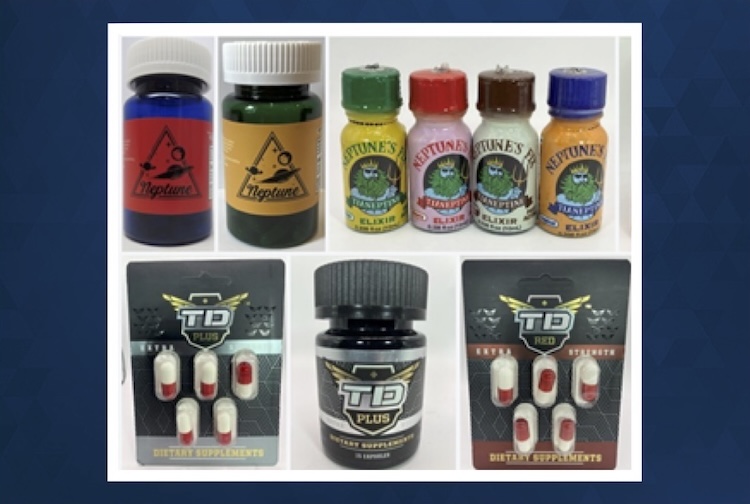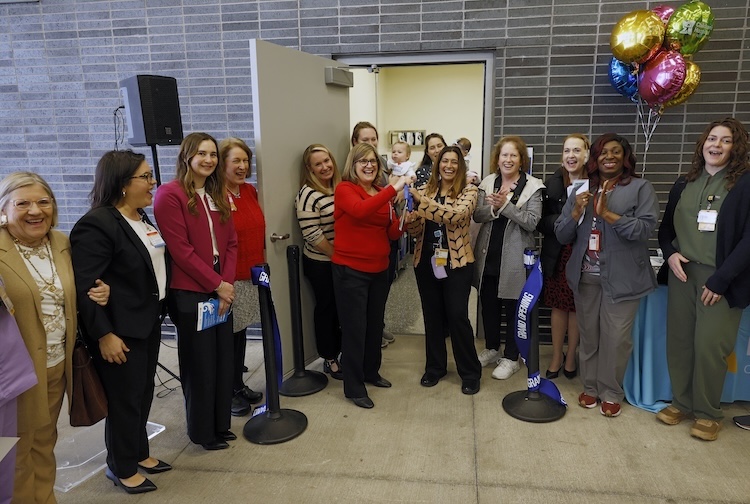What you need to know about ‘gas station heroin’
As use continues to rise nationally, the director of the Virginia Poison Center at VCU Health raises concerns about this popular – but dangerous – opioid-like substance.
July 08, 2025 Tianeptine, commonly known as gas station heroin, was recently banned in Virginia. (U.S. Food and Drug Administration, 2025)
Tianeptine, commonly known as gas station heroin, was recently banned in Virginia. (U.S. Food and Drug Administration, 2025)
By Mia Stephens
Often marketed as a dietary and brain supplement, tianeptine, also known as “gas station heroin,” is a product raising concerns across the United States.
Since 2016, the U.S. Food and Drug Administration (FDA) and poisons centers nationwide have seen an increase in severe medical issues caused by this unregulated drug.
“Our center saw a notable increase in calls related to tianeptine in 2024,” said John Downs, M.D., M.P.H., director of the Virginia Poison Center at VCU Health. “About a third of patients reported to our center required intensive care unit level monitoring for conditions associated with tianeptine toxicity or withdrawal.”
Although tianeptine is sold online and at small stores like gas stations, the drug is not approved by the FDA for any medical use and is considered dangerous due to its opioid-like characteristics and extensive side effects.
In 2025, Virginia banned tianeptine, adding it to a list of Schedule I drugs. Ten other states have also banned it, including Virginia’s neighbor North Carolina.
VCU Health News spoke with Downs about tianeptine, its side effects and best practices for recovery and prevention.
What is “gas station heroin” (tianeptine) and what is it used for?
“Gas station heroin” is the nickname for tianeptine, a substance that is sometimes sold in convenience stores, smoke shops, or online under brand names like Tianaa, Zaza, Neptune’s Fix, Pegasus and TD Red. In the U.S., it is often marketed as a dietary supplement or nootropic which can mislead consumers about its safety.
Outside the U.S., tianeptine may be considered an antidepressant that is prescribed in lower doses to treat anxiety, major depression disorder and irritable bowel disease. With recreational use, daily doses can reach as high as 3,000mg. Studies have shown high amounts of this drug increase the uptake of serotonin to the brain leading users to experience a sense of euphoria.
Misuse of tianeptine can produce effects similar to heroin or morphine, which is why it’s been dubbed “gas station heroin.” Its availability in gas stations or convenience stores does not mean it is safe or legal.
What are the health risks associated with tianeptine?
Tianeptine can cause a range of serious symptoms, especially when taken in high doses or combined with other substances. Common effects include:
- Sedation
- Respiratory depression (slowed or stopped breathing)
- Coma
- Confusion or agitation
- Fast or irregular heart rate
- Seizures
Users may also experience symptoms that resemble opioid withdrawal when they try to stop using the substance.
When should someone seek medical care?
If you witness someone experiencing concerning symptoms after tianeptine use — such as confusion, difficulty breathing, chest pain or unresponsiveness — contact emergency medical care immediately. If you’re not sure what to do, the Virginia Poison Center is available 24/7 at 1-(800)-222-1222 for free, confidential advice.
What does recovery from tianeptine look like?
Recovery from a severe episode of tianeptine toxicity depends on how much was taken, whether other drugs were involved, and the quickness of medical intervention.
Depending on the severity of the case, some patients may require hospital-level care which would include respiratory support or treatment for withdrawal. Cases of chronic usage and dependence might need specialized addiction treatment services.
Can naloxone help someone who has overdosed on tianeptine?
Yes, in some cases, naloxone (Narcan®) may help reverse some of the dangerous effects of a tianeptine overdose, especially if the patient has slowed or stopped breathing. Since tianeptine acts on opioid receptors, naloxone can be life-saving.
Once someone is given naloxone, it is always important to call 911 immediately.
Are there other similar products that should be avoided?
The Virginia Poison Center at VCU Health strongly encourages people to avoid unapproved brain boosters or mood enhancers sold outside of a licensed pharmacy, especially when its ingredients or effects are unclear.




